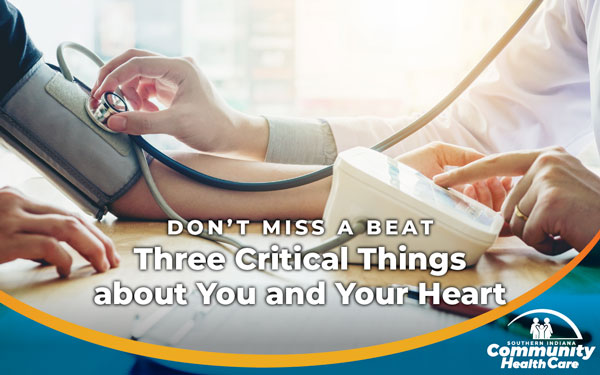Three Critical Things about You and Your Heart

By Curtis Thill, M.D.
As you’re reading this, your heart is busy pumping vital blood all over your body through a vast and complex network of veins, arteries, and capillaries. How long would this system be if laid end to end? An unbelievable 60,000 miles, twice the circumference of the earth.
By this time tomorrow, the heart beating in your chest will have pumped upwards of 2,000 gallons of blood. The point? Your heart holds the singular distinction of being a marvelous, powerful, and many-faceted organ.
Since February marks heart health month, let’s delve into three crucial aspects to safeguard your remarkable, resilient organ.
As a long-time physician, I first want to establish that heart health isn’t just a medical concern; it’s a shared journey. That means that as a trusted healthcare partner, I focus on telling the truth.
Truth in this case includes the fact that heart disease is the number one cause of death in America. But this story ends on a positive note, so please read on.
Take care. The first – and perhaps most simple – thing that you need to know about your heart is that you have to take care of it. It just beats away mostly unnoticed in your chest, but it’s usually one of the first things we medical providers check. Why? Simply put, if it stops, you stop.
So heart health is critically important to us. And you should think about sharing in that.
Here’s a hard fact about life in our region: the levels of cardiovascular (heart) disease in Crawford County and the region trend higher than both the state and national averages. Given that fact, the second thing you can consider about your heart is that this statistic might include you. But you have the ability to stay ahead of the curve!
Slow and stealthy. Related to the second need-to-know item is that heart disease is often slow and stealthy as it advances. Without learning more about heart health and getting regular checkups, many people often express surprise when heart-related symptoms of fatigue, shortness of breath, or pain – or worse – appear.
Dr. Peter Attia, author of the currently popular Outlive book, tells a sobering story about this. When he was in medical school, his pathology professor asked what was then the most common symptom of advanced heart disease? The unsettling answer? Sudden death.
Of course, the good news here is that advancements in treatment and intervention have significantly lowered that number. But the plain truth is that sudden fatal outcome from a heart attack still represents about a third of all cases.
You can lower your risks. This leads to the third thing you need to know about your heart: heart disease is preventable in many cases. Sometimes your genes may deal you a life situation (did your parents or siblings ever have a heart attack or stroke?), but you can still do something about it. The key point here is that you can make changes and potentially improve heart health at any age or time, but it’s really important to start early.
The main takeaway? Now is the time to do something for you and your heart. It’s always good to get advice from your provider. There also exist good online resources, including suggestions from SICHC’s own Donna Charles, LPN, CHW. Check out her short video at https://bit.ly/FollowMyHeart-CHC
The time to act is now – take charge of your heart health and reduce risks today!
A board-certified family physician, Dr. Curtis Thill has practiced medicine in the Crawford County region for more than 30 years.
